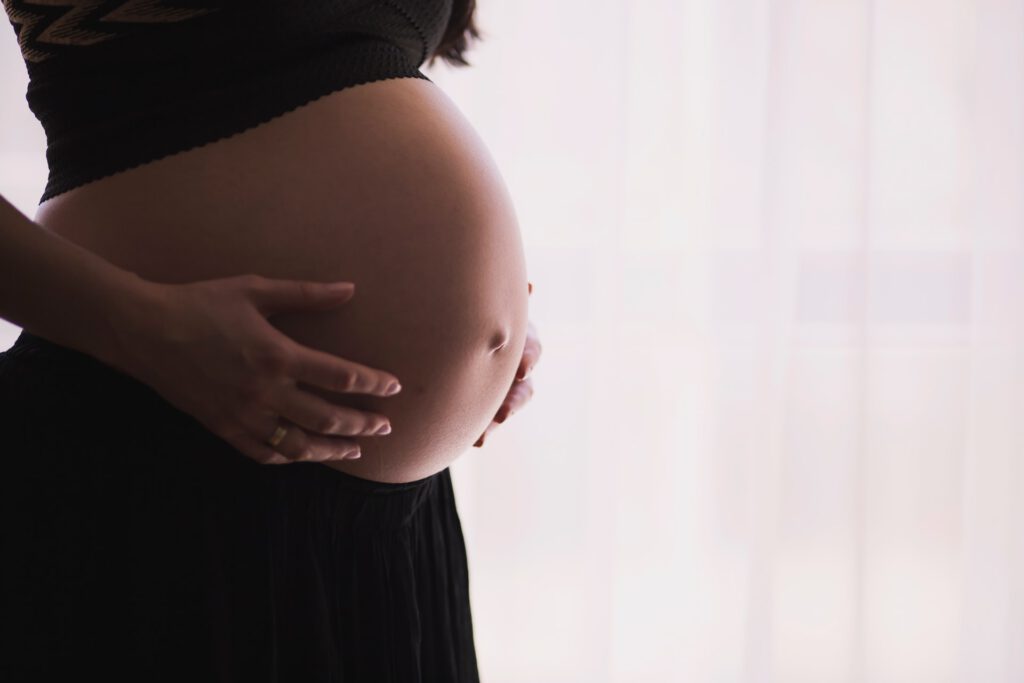Everything You Need to Know About Postpartum Skin

Collaborative Post
Pregnancy and childbirth are some of a woman’s most beautiful experiences. Still, they can also affect your skin in unexpected ways. As a new mum, you might notice changes like stretch marks, dark spots, acne, dryness, and even hair loss.
Don’t worry; you’re not alone! These are all common postpartum skin concerns. While it’s easy to feel frustrated, you can do plenty of things to take care of your skin during and after pregnancy. In this blog post, we’ll dive into everything you need to know about postpartum skin – from why these changes happen to practical tips for managing and caring for your skin during this exciting time in your life. So let’s get started!
What causes postpartum skin changes?
Postpartum skin changes are normal after giving birth, mainly caused by the hormonal fluctuations that happen during and after pregnancy. When you’re pregnant, your estrogen and progesterone levels increase, which affects your skin’s elasticity and blood flow. But once you give birth, those hormone levels drop dramatically, which can result in postpartum skin concerns.
Additionally, the fluctuating levels of melanin in your skin can lead to skin changes called hyperpigmentation. This condition happens when your body produces too much melanin, which is triggered by hormonal changes during pregnancy. As a result, you might notice dark spots on your face, neck, or other areas of your body. Below are the most common types of postpartum skin complaints.
Types of Postpartum skin concerns
Postpartum Acne
Postpartum acne is a common skin concern that can frustrate new mums. It’s caused by hormonal fluctuations after childbirth, which can increase oil production and clogged pores. If you’re experiencing postpartum acne, know that you’re not alone, and it’s likely to improve over time as your hormones balance out. Remember to be kind to yourself and your skin as you adjust to this new phase of motherhood.
Postpartum Dry Skin
Postpartum dry skin can be uncomfortable and itchy, but it’s a common concern for many new mums. In addition, hormonal changes during and after pregnancy can cause dehydration, leading to dry skin. This can be particularly noticeable in areas like the face, hands, and feet.
Postpartum Loose Skin
Postpartum loose skin is a standard change that many new mums experience after giving birth. The skin around your face, neck, stomach, thighs and other areas may feel looser or stretchier than before. This is caused by the stretching and growth of your skin during pregnancy and hormone fluctuations. Remember that these changes are a natural part of the postpartum process, and it’s essential to be patient with yourself as you adjust to your new body.
Postpartum Oily Skin
If you had oily skin during pregnancy, you might also experience postpartum acne. The hormone fluctuations after giving birth can cause an increase in oil production and clogged pores, leading to breakouts.
Tips for caring for your postpartum skin
After understanding the causes of postpartum skin concerns and the different skin types, here are some tips to help manage and treat postpartum skin changes. And by taking good care of your skin during and after pregnancy, you can feel more confident and comfortable in your postpartum body.
Limit Sun Exposure
As you navigate through the joys and challenges of postpartum life, it’s important to remember to take care of your skin. One of the key ways to do this is by limiting your sun exposure. During this time, the hormones in your body can make your skin more sensitive to the sun, so be sure to wear sunscreen, cover up with a hat or lightweight clothing, and seek shade when possible. Your skin will thank you!
Laser Treatment
Laser treatments can be safe and effective ways to treat pigmentation and to tighten the skin. In addition, these non-invasive treatments can help with postpartum skin concerns such as stretch marks, pigmentation, and fine lines. Laser-type solutions allow for a targeted treatment on only the affected areas, so the healthy skin around the damaged area is left alone.
Healthy Diet
Maintaining a healthy diet is crucial for your overall health. It can also have a positive impact on your postpartum skincare. Eating a balanced diet with plenty of fruits, vegetables, lean proteins, and healthy fats can help provide the nutrients your skin needs to stay healthy and vibrant. Additionally, staying hydrated by drinking plenty of water can help keep your skin looking and feeling its best. Finally, remember to be kind to yourself and enjoy plenty of nourishing foods during this exciting and transformative time.
Health and Wellbeing
Taking care of your health and wellbeing is essential during the postpartum period. It can have a positive impact on your skin as well. Getting enough rest, managing stress, and engaging in regular physical activity can all contribute to a healthy and radiant complexion. It’s also important to listen to your body and seek medical attention if you have any concerns about your skin or overall health. Finally, remember to prioritise self-care and give yourself the time and attention you need to feel your best.
While there are many factors to consider regarding postpartum skin changes, the above highlights the main causes, types and guide to combating skin changes after giving birth, here are additional tips on firming loose skin after pregnancy if you are still looking for more guidance on treating postpartum skin concerns.
If you have any concerns about your health, please consult your medical practitioner.
Photo by freestocks on Unsplash

